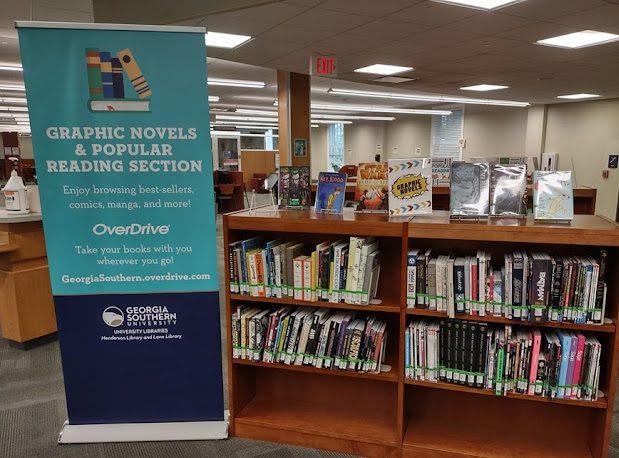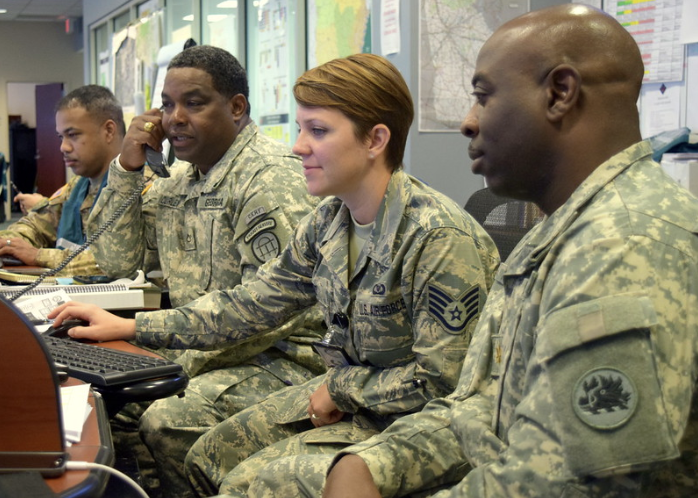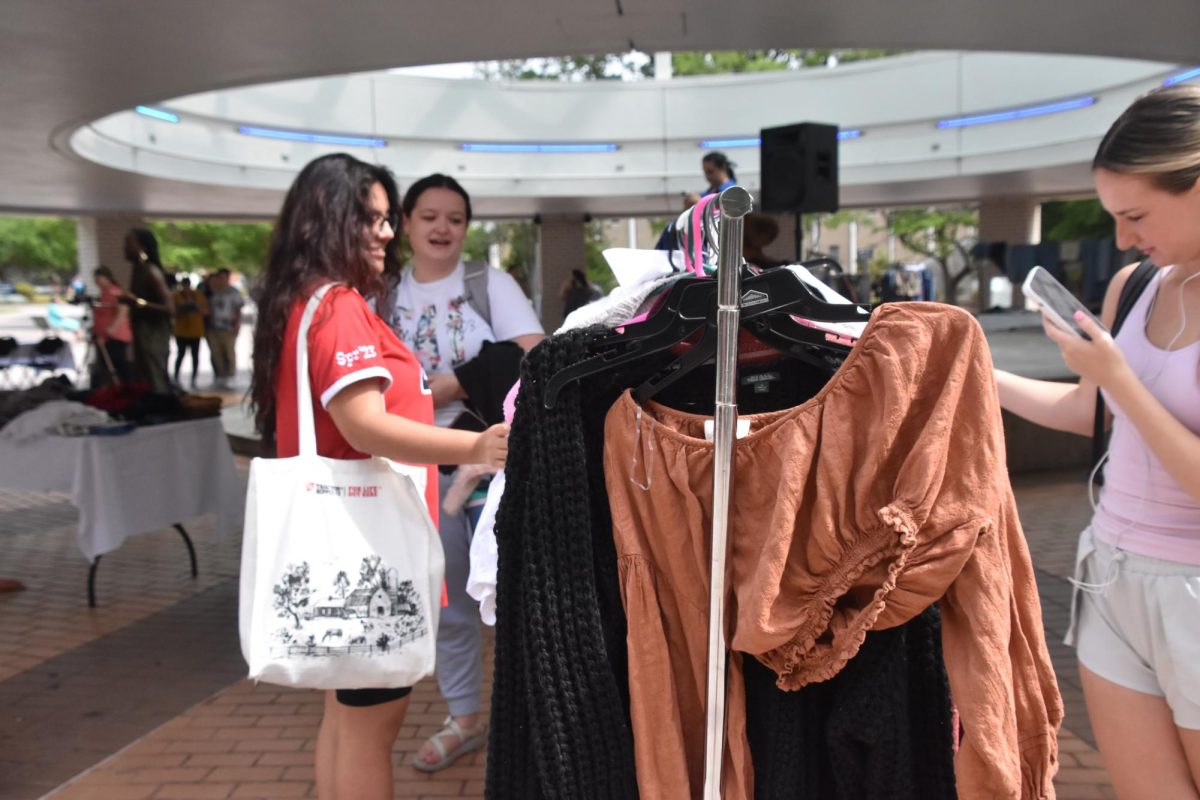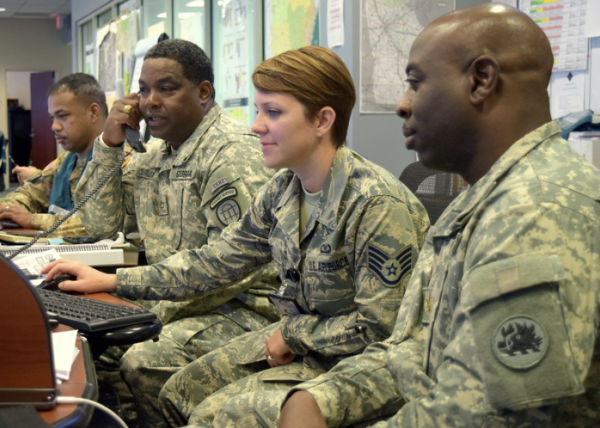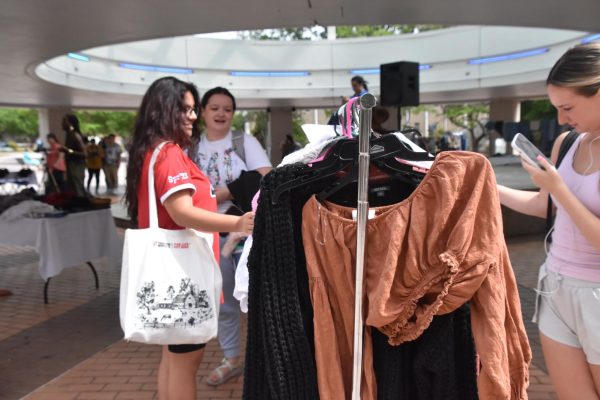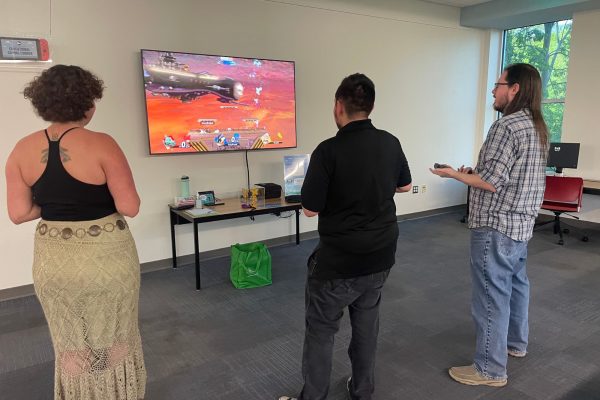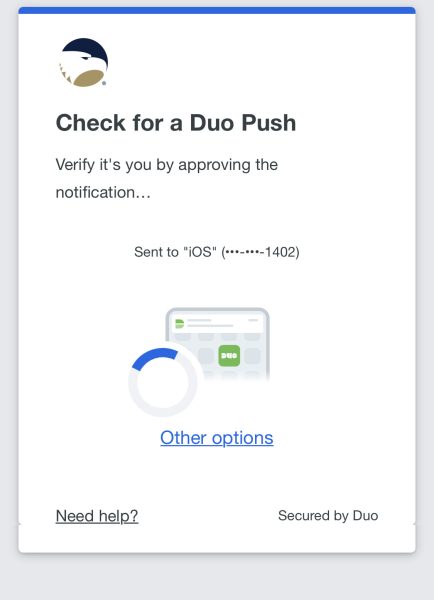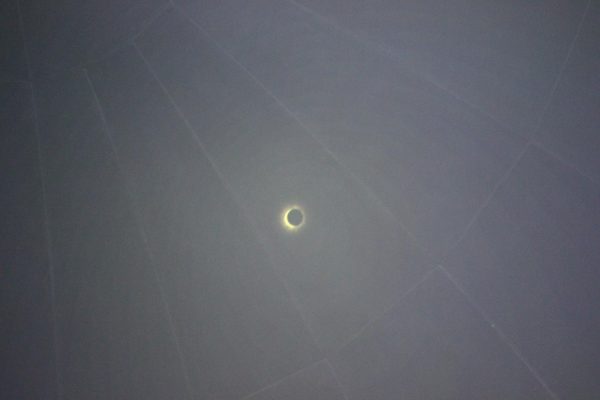GSU students show interest at the Crisis in Syria panel
September 12, 2013
The Crisis in Syria panelists met a large crowd tonight, having to change rooms three times in order to fit the demand.
“We are talking about really tragic and grave events but my heart really leapt with joy when I saw so many students and so engaged and so thoughtful,” Jacek Lubecki, Ph.D. director for the Center for International Studies and assistant vice president for Academic Affairs, said.
The varying specialized interests of the panelists provided students with the basic overview of the situation ranging from a historic background, military strategies, domestic policy, and Arabian culture.
“I think it’s interesting to see the different opinions, even when other professors were talking, and the next professor, you could almost see it in their face if they agreed or not,” Olivia Mathews, junior international studies and political science double major and Canadian exchange student, said.
Glynn Ellis, Ph.D. professor for the Center for International Studies, discussed the options if United States attacks.
The least likely course of action, said Ellis, is to bring forces in on the ground, the second is manned bombers, this course though efficient has the disadvantage of planes being easily shot down.
Ellis said that drones, though thought of as an option, are not likely are not likely to be used as they are slow and designed for surveillance. Those equipped with weapons are not as accurate as a pilot.
The course of attack that we are most likely to see is the use of cruise missiles because the missile can travel 600 to 1500 miles, fly low and are highly accurate, Ellis said.
The likelihood of an attack at all was also discussed.
“There are no good choices here, there is not a single good choice. We crave packaged solutions, we like answers that are yes and no,” Darin Van Tassell, PhD, professor for the Center for International Studies, said.
“We hope that it will end in a peaceful way but we really don’t know. As much as I wanted to get some answers tonight, it is really hard to get answers. We are just trying to learn about it and see the reasoning behind and expect for the best,” Kris White, recent alumni of Georgia Southern University, said.
The history of the Middle East post-World War I to the present was presented by Ahmet Akturk, PhD, professor in the Department of History, and Mr. Youssef Salhi, professor in the Department of Foreign Languages, provided statistics on the Arabian populations’ opinion.
“I think that the professors definitely covered a good amount of information explaining a lot of what is going on, and, myself included, I’m sure a lot of people don’t understand exactly what is going on, and the fact that we were given both the history and the current situation from both sides was definitely very informative,” Antoine Sinclair, junior film and video production major, said.
Only four student questions were allowed, given the hour-long time constraint but another panel was in demand by some students.
Lubecki said, “I think thoughtful things can be said in one hour and I think that thoughtful things were said. By the end of it, it was a meaningful conversation with strong voices and it was educational.”


